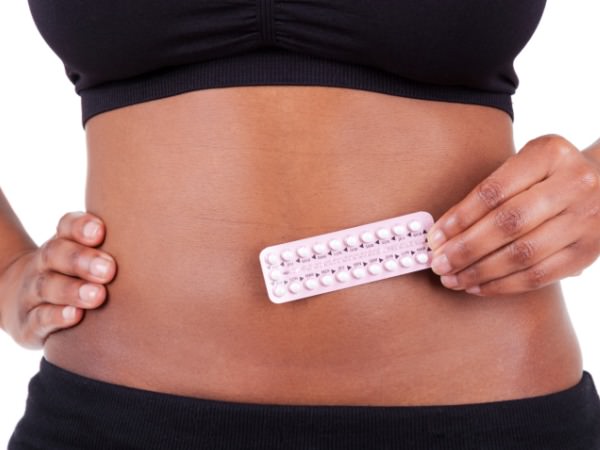
You are doing everything right; everything that is humanly possible to get that half an inch of hair growth that the websites and blogs all boast that is ‘normal’ for the average human to grow healthy hair.
I do not know about you, but it can be super frustrating to hear what is normal for everyone and then experience the exact opposite for yourself. The truth is there are many factors affecting hair growth, most of which we discuss here on the blog, but it is important to understand that growth is a metabolic process and so the effects are pretty technical and complicated.
As with many metabolic processes there are things that we might do in our lifestyle that throw off the intended order of things. It is virtually impossible to be the most perfect in everything but it is important to be educated in most of the things that could cause slow or very little hair growth.
With that said what are some of the things that can cause little to no hair growth other than plain old genetics?
1. Caffeine
On one hand tea rinses are great because they prevent excessive shedding and if you are dealing with abnormal shedding then you might definitely consider one. However caffeine in excess can stunt hair growth which can be counter productive.
There are no solid facts about what caffeine does to cause hair growth, studies are being conducted all the time to determine just how caffeine affects a woman’s scalp, with the ever occurring instances of stunted growth for some women. From our simple perspective it is just too much of a good thing having more of a negative affect than a positive one.
2. Under active Thyroid
The thyroid gland is located in the front of our necks. It is an endocrine gland that produces and stores our hormones. The gland affects the function of every organ in our body and it also regulates our metabolic rate which is what we associate with being able to lose or gain weight effectively.
If your thyroid is under active then your hair will shed excessively. In a normal circumstance you will have a balance between the growing phase (anagen phase) and the shedding phase (catagen phase) and your hair will grow and shed as it should to the point of you seeing growth.
However when your thyroid is under active the phases get all skewed and mixed up where the growth phase becomes the shedding phase and not vice versa. (Arch Dermatol, pp 349-352, 1972)
Essentially the hair follicles will not have the attachment areas for thyroid hormones that control how growth and shedding should actually happen and you will lose hair all the time regardless of what phase you are in.
To fix this your doctor can supplement with synthetic hormones so that your hair can grow and shed in a more balanced fashion.
If you have little to no hair growth and a history of thyroid trouble make sure to have a conversation with your doctor about it. You just might be able to fix the issue!
3. Too much supplementation
Do not ever think that if you overdose on vitamins that you would get twice as much benefit. The exact opposite occurs when taking way too many hair vitamins beyond the recommended dosage.
You can actually lose your hair until you can determine the right amount of vitamins and minerals you actually need. We are from a society of self diagnosis because we get so anxious about our goals but we can do more harm than good at times. Be very careful to follow the directions of your doctor and the labels on your supplements*.

4. Hormonal imbalances
As mentioned before your hormones tend to control when certain functions happen in your body. So if you suffer from hormonal imbalances with estrogen in particular, your hair growth will be impacted.
When you are pregnant estrogen is increased which increases the hair growth cycle. That’s why most of us report longer hair during our 9 months of shear bliss.
For women with higher than normal testosterone they will see thinner hair and shed more on their head. You will see increased hair growth on your chin and chest though which can be a pain.
One of the ways to tell that things are not too kosher with your hormones is if your menstrual cycle is off or if your hair is thinning or shedding excessively.
It makes sense to have yourself checked out and see how your hormones are doing just to make sure you have eliminated that as a cause of your stunted or slow growth.
5. Eating disorders
We post every now and again about what foods you need to eat to encourage hair growth. We never tend to talk about the effects of anorexia or bulimia for instance on hair growth. Eating disorders present much bigger problems than the effect of just losing your hair.
Our best advice is to seek help if you have an eating disorder or feel that you have a very unhealthy relationship with food. Eating disorders can affect every area of your life including the health of your hair because you might be eating very little to no protein which will cause no growth or little growth.
6. Low iron
Iron deficiency can also lead to slow growth and hair loss. Low iron levels can lead to anemia; however, there are studies that show women having low levels of iron with significant hair loss and no anemia so do not assume that because you are not anemic you will not experience the effects of low iron* levels.
What happens with low iron* levels is very similar to what happens when your thyroid gland is not working properly. The hair phases get mixed up and you end up losing rather than growing hair.
To fix this see a doctor and get proper supplementation of iron* so that you can balance out the iron* you are getting from your food with the ones that you are taking.
Ecsessive alcohol consumption might I Add…
What about birth control and hormones, my hair has been shedding .
What about birth control and hormones, my hair has been shedding .